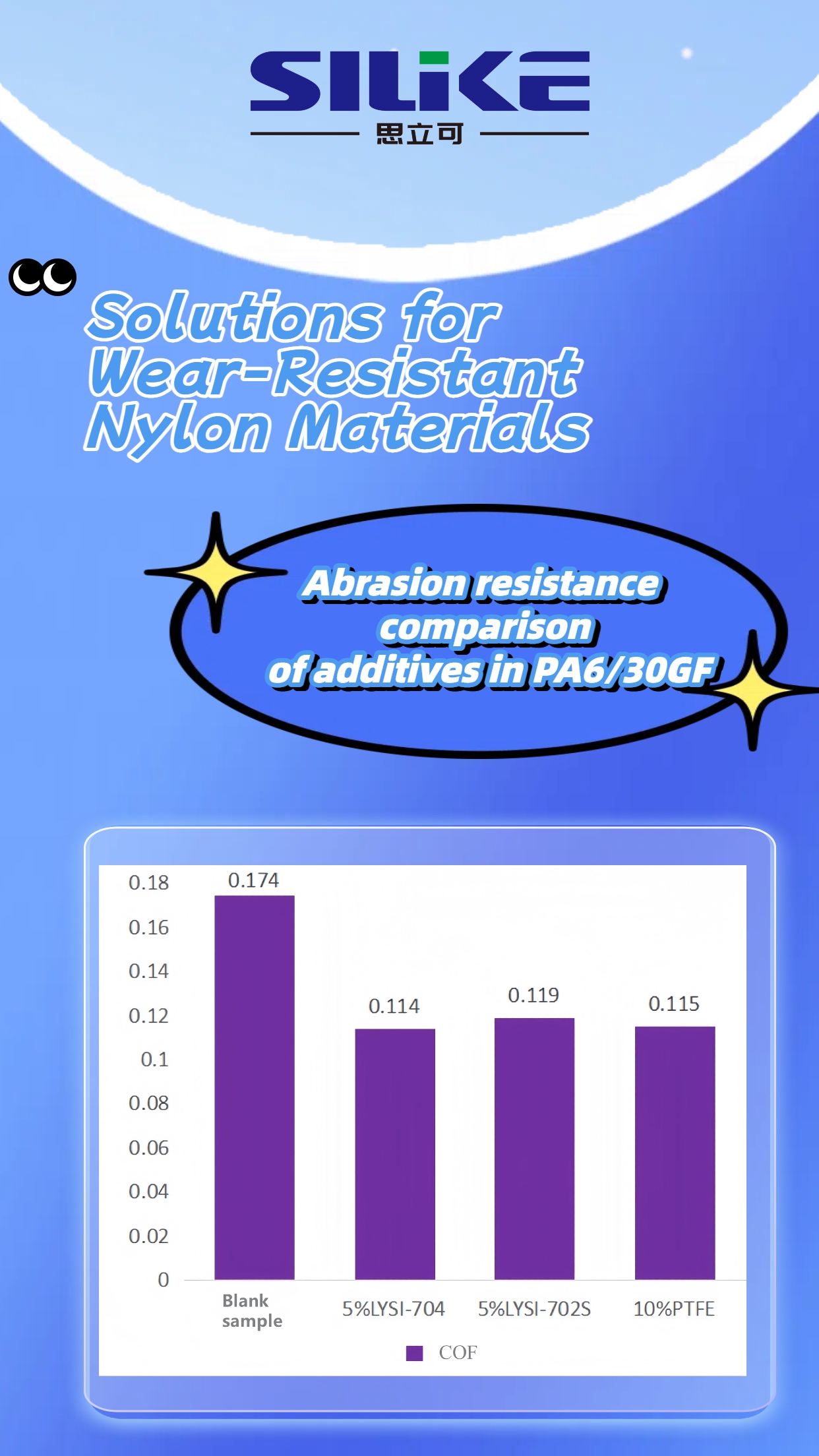Industry Insights on Enhancing Nylon Performance in High-Wear Applications
In the ever-evolving landscape of engineering plastics, wear-resistant nylon materials continue to play a crucial role across multiple industries. From automotive components to industrial machinery, the demand for durable, low-friction nylon solutions has driven significant innovation in material science.
Traditional Solutions to Nylon Wear Resistance
The engineering community has developed several well-established methods for enhancing the wear resistance of PA6 and PA66, the most commonly used nylon types in industrial applications.
1. Glass Fiber Reinforcement: Glass fiber reinforced nylon (GF/PA6, GF/PA66) is formed by blending glass fibers into a nylon matrix, creating a high-performance composite that dramatically improves mechanical properties. The fibers form a reinforcing 3D network, enhancing tensile strength (up to 4×), stiffness (3–5× higher flexural modulus), and heat resistance (50–100°C higher HDT) through efficient load transfer. Based on fiber content, these composites range from low-fiber (10%-20%), medium-fiber (25%-35%), high-fiber (40%-50%), and ultra-high-fiber (>50%) grades. A fiber content above 30% notably optimizes wear resistance. This combination makes it a top choice for demanding industrial applications.
2. Carbon Fiber Reinforcement: Adding carbon fibers to PA6/PA66 significantly improves both mechanical strength and wear resistance. Unlike other reinforcing materials, carbon fiber is relatively soft with low abrasiveness, preventing damage to metal counterfaces during friction. Typical addition rates range from 5% to 20%, with high-performance applications utilizing up to 30%.
3. PTFE/PA6 Alloys: With extremely low friction coefficients, PTFE forms lubricating films during friction, making it particularly suitable for high-load applications. Typical addition rates in PA6 range from 15% to 20%.
4. Molybdenum Disulfide(MoS2)/PA66 Alloys: Acting as a crystallization promoter, molybdenum disulfide increases the crystallinity of nylon, creating harder and more wear-resistant surfaces. Its high affinity for metals allows it to fill microscopic pores on metal surfaces, creating smoother interfaces. This makes it ideal for nylon-metal friction applications, with typical addition rates of 3% to 15%.
5. Graphite-Modified PA66: Graphite additives effectively reduce friction coefficients while enhancing self-lubrication properties. The layered structure of graphite allows easy sliding during friction, reducing wear. This modification is particularly effective in water environments, with typical addition rates between 3% and 15%.
Emerging Challenges in Nylon Wear Resistance: Balancing Performance, Cost, and Sustainability
Despite these established solutions, manufacturers have long struggled with balancing performance requirements against cost considerations and growing sustainability demands. Traditional additives often require relatively high loading levels, which can impact processing characteristics and increase material costs.
“The industry has been searching for solutions that can deliver exceptional wear resistance without the drawbacks associated with conventional additives,” notes some polymer engineering experts. “The ideal solution would require minimal addition rates while maintaining or even enhancing the base material’s mechanical properties.”
Innovative Solutions for Wear-Resistant Nylon engineering plastics
Chengdu Silike Technology Co., Ltd. has been a leading innovator and manufacturer of high-performance silicone polymer additives since 2004. Specializing in silicone technology for the rubber and plastics industry, we provide cutting-edge processing aids that solve complex manufacturing challenges and enhance material properties for global industrial applications. In response to these challenges, we have developed a high-efficiency silicone-based wear-resistant additive LYSI-704, designed to optimize nylon modification while supporting sustainable production.

Why SILIKE Wear-Resistant Agent LYSI-704 Transforms Nylon Performance? What Makes LYSI-704 Different?
The innovative LYSI-704 anti wear additive, based on specially engineered polysiloxane structures, unlike traditional wear-resistant additives, LYSI-704 achieves uniform dispersion throughout nylon matrices at remarkably low addition rates. This creates a persistent lubrication layer that significantly reduces friction coefficients while preserving the base material’s mechanical integrity.
“What makes this technology particularly impressive is its multifunctional nature,” explains a research and development expert from SILIKE who focuses on the application of silicone in engineering plastics. “When incorporated into PA6+glass fiber systems through melt compounding, LYSI-704 not only delivers exceptional wear resistance comparable to PTFE-based solutions but also improves impact strength – a combination previously thought impossible.
Perhaps most notably for manufacturers concerned with aesthetics, plastics additive /Modifier LYSI-704 also addresses the persistent fiber floating issue that has plagued glass-reinforced nylons, opening new possibilities for applications where surface quality is critical.
Moreover, as sustainability concerns continue to shape material selection decisions, LYSI-704 silicone-based chemistry provides a fluorine-free alternative to traditional PTFE additives, aligning with global initiatives to reduce the use of fluorinated compounds. The technology’s ability to deliver superior performance at low addition rates also translates to reduced resource consumption and potentially lower carbon footprints across the manufacturing process.
For engineering plastics manufacturers seeking competitive advantages through material innovation, this silicone-based abrasion additive breakthrough technologies offer compelling opportunities in an increasingly demanding marketplace, while opening new possibilities for application development.
Are you ready to enhance your nylon components with novel wear-resistant technology?
If you’re looking for effective solutions to improve the wear resistance of your nylon components, innovation like SILIKE LYSI-704 anti-wear additive signals a new direction for engineered material, and is the breakthrough you’ve been waiting for. It offers a sustainable alternative to traditional PTFE additives. Contact us today to discover how this innovative additive and modifier can transform your engineering plastics while aligning with your sustainability goals.
Tel: +86-28-83625089 or via Email: amy.wang@silike.cn. Website:www.siliketech.com
Post time: May-22-2025





